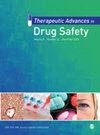外科患者用药安全事故的特点:对事故报告的回顾性横断面分析
IF 3.4
3区 医学
Q2 PHARMACOLOGY & PHARMACY
引用次数: 0
摘要
背景:与用药相关的安全事故(MSI)是造成医院患者可预防伤害的最常见原因之一。设计:对 2017 年 1 月 1 日至 2020 年 10 月 31 日期间从风险管理系统中提取的匿名 MSI 报告进行回顾性横截面聚合分析。方法:事故报告包含与事故类型和性质有关的分类数据以及报告人的自由文本叙述。使用 IBM SPSS Statistics © 软件(版本 26.0.01; 2019)对分类数据进行了定量分析和描述性分析。结果:在总共 670 起事件中,大多数 MSI 没有造成伤害(n = 495,73.9%)。大多数 MSI 发生在用药过程中(439 例,65.5%)。半数事件(n = 335,50%)与三种药物类型之一有关:阿片类药物、抗菌药物和抗血栓药物。沟通失败是最常见的错误原因(39 人,5.8%),药物遗漏是最常见的主动失误(156 人,23.3%)。应告知手术环境中的工作人员阿片类药物、抗菌药物、肝素和其他抗血栓药物事件的高频率,因为这些药物在手术环境中的 MSI 报告中占一半。进一步的研究应探索减少用药错误的策略以及改善员工之间沟通的工具,以降低与关键药物相关的药物相关伤害风险。本文章由计算机程序翻译,如有差异,请以英文原文为准。
Characterizing medication safety incidents in surgical patients: a retrospective cross-sectional analysis of incident reports
Background:Medication-related safety incidents (MSIs) are among the most frequent contributors to preventable harm in hospital patients. There is a paucity of research that explores the factors that contribute to MSIs across the departments of high-risk specialties such as surgery.Objectives:To characterize MSIs involving surgical patients across two secondary care sites at a University Health Board.Design:Retrospective cross-sectional convergent analysis of anonymous MSI reports extracted from the risk management system between 1st January 2017 and 31st October 2020 was undertaken.Methods:Incident reports contained categorical data pertaining to the type and nature of the incident as well as free-text reporter accounts. Categorical data were analyzed quantitatively, undergoing descriptive analysis using IBM SPSS Statistics © software (Version 26.0.01; 2019). Content analysis of free-text responses was undertaken using the Organizational Accident Causation model as the underpinning theoretical framework.Results:Of a total of 670 incidents, most MSIs did not result in harm ( n = 495, 73.9%). Most MSIs occurred during administration ( n = 439, 65.5%). Half of the incidents ( n = 335, 50%) were related to one of three medication types: opioids, antimicrobials, and antithrombotic agents. Communication failures were the most frequent error-producing condition ( n = 39, 5.8%) and drug omission was the most frequent active failure ( n = 156, 23.3%).Conclusion:To the knowledge of the authors, this is the first study in the United Kingdom that reports the medications most frequently involved in MSI reports for surgical patients. Staff in the surgical setting should be informed of the high frequency of incidents involving opioids, antimicrobials, heparin, and other antithrombotic agents as they appear in half of MSI reports in the surgical setting. Further research should explore administration error reduction strategies as well as tools to improve communication between staff to mitigate the risk of medicines-related harm associated with key medications.
求助全文
通过发布文献求助,成功后即可免费获取论文全文。
去求助
来源期刊

Therapeutic Advances in Drug Safety
Medicine-Pharmacology (medical)
CiteScore
6.70
自引率
4.50%
发文量
31
审稿时长
9 weeks
期刊介绍:
Therapeutic Advances in Drug Safety delivers the highest quality peer-reviewed articles, reviews, and scholarly comment on pioneering efforts and innovative studies pertaining to the safe use of drugs in patients.
The journal has a strong clinical and pharmacological focus and is aimed at clinicians and researchers in drug safety, providing a forum in print and online for publishing the highest quality articles in this area. The editors welcome articles of current interest on research across all areas of drug safety, including therapeutic drug monitoring, pharmacoepidemiology, adverse drug reactions, drug interactions, pharmacokinetics, pharmacovigilance, medication/prescribing errors, risk management, ethics and regulation.
 求助内容:
求助内容: 应助结果提醒方式:
应助结果提醒方式:


